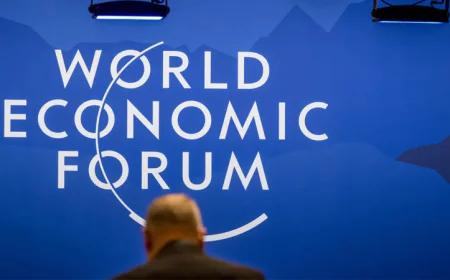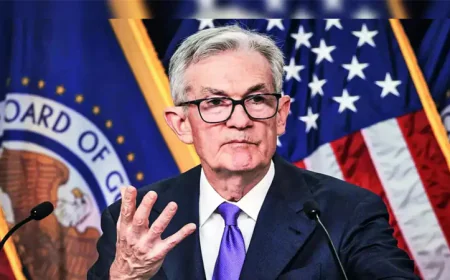Stocks Consolidate After Bullish Week on Resilient US Economy

US and European stock markets stalled or trimmed gains on Friday after a bullish week buoyed by US data and upbeat company earnings. New York -- whose S&P 500 and Nasdaq Composite struck record highs on Thursday -- made little further headway, while the Dow slid. In Europe, London's blue-chip FTSE was up though just under its all-time record reached on Tuesday. Paris was flat and Frankfurt slipped a little on profit-taking. Asian markets closed higher except for Tokyo, which was dragged down ahead of weekend upper-house elections that could spell trouble for Japanese Prime Minister Shigeru Ishiba. The week's strong performance in equities showed that worries were largely being set aside for now when it comes to US President Donald Trump's threats of higher tariffs from August 1 if governments do not agree on trade deals. "With the president toning down his rhetoric, markets are quick to forget tariff risks and concentrate on the positives including a resilient US economy," said Kathleen Brooks, research director at trading firm XTB.
The overall optimism was fueled by data suggesting the US economy was still well, with no persuasive indication that the tariffs were causing a surge in inflation. A June consumer price index report released this week "does not reveal tariff-induced price increases, but a closer look shows clear signs" they could be building, said Holger Schmieding, chief economist at Berenberg bank. "We expect (US) annual core inflation to approach 3.5 percent by year-end and the Fed to hold the policy rate at the 4.25-4.50 percent target range," he said, referring to the US central bank. One Federal Reserve governor, Christopher Waller, on Thursday argued for a July rate cut, saying he expected tariff increases to cause a one-time bump to prices. On Friday, Waller flagged risks in the labor market. But overall, Fed policymakers have remained cautious as they gauge the right timing for further interest rate reductions.
Trump this week denied he was planning to sack Fed boss Jerome Powell, whom he had been urging to reduce US borrowing costs to boost the world's top economy. A meeting in South Africa of G20 finance ministers on Friday pointedly stressed that "central bank independence is crucial" around the world. In corporate news, American Express followed big US banks in reporting better results than expected in the second quarter. Results from streaming giant Netflix also outperformed, although its share price slipped Friday as investors weighed whether it had been overvalued. In London, British luxury brand Burberry said sales had not fallen as much as analysts expected, "which is a sign that the company's new strategic direction could be working," said XTB's Brooks. Its shares rose nearly six percent. On the downside, shares in GlaxoSmithKline slid more than four percent after the British pharmaceutical giant reported a US regulatory setback for its blood cancer drug Blenrep. Oil prices initially rose after fresh EU sanctions aimed at crimping Russia's crude exports, to pressure Moscow over its war on Ukraine. But then they fell back.
- Key figures at around 2020 GMT -
New York - Dow: DOWN 0.3 percent at 44,342.19 points (close)
New York - S&P 500: FLAT at 6,296.79 (close)
New York - Nasdaq Composite: UP 0.1 percent at 20,895.66 (close)
London - FTSE 100: UP 0.2 percent at 8,992.12 (close)
Paris - CAC 40: FLAT at 7,822.67 (close)
Frankfurt - DAX: DOWN 0.3 percent at 24,289.51 (close)
Tokyo - Nikkei 225: DOWN 0.2 percent at 39,819.11 (close)
Hong Kong - Hang Seng Index: UP 1.3 percent at 24,825.66 (close)
Shanghai - Composite: UP 0.5 percent at 3,534.48 (close)
Euro/dollar: UP at $1.1627 from $1.1600 on Thursday
Pound/dollar: DOWN at $1.3414 from $1.3415
Dollar/yen: UP at 148.73 yen from 148.60 yen
Euro/pound: UP at 86.67 pence from 86.43 pence
Brent North Sea Crude: DOWN 0.4 percent at $69.28 per barrel
West Texas Intermediate: DOWN 0.3 percent at $67.34 per barrel
















































